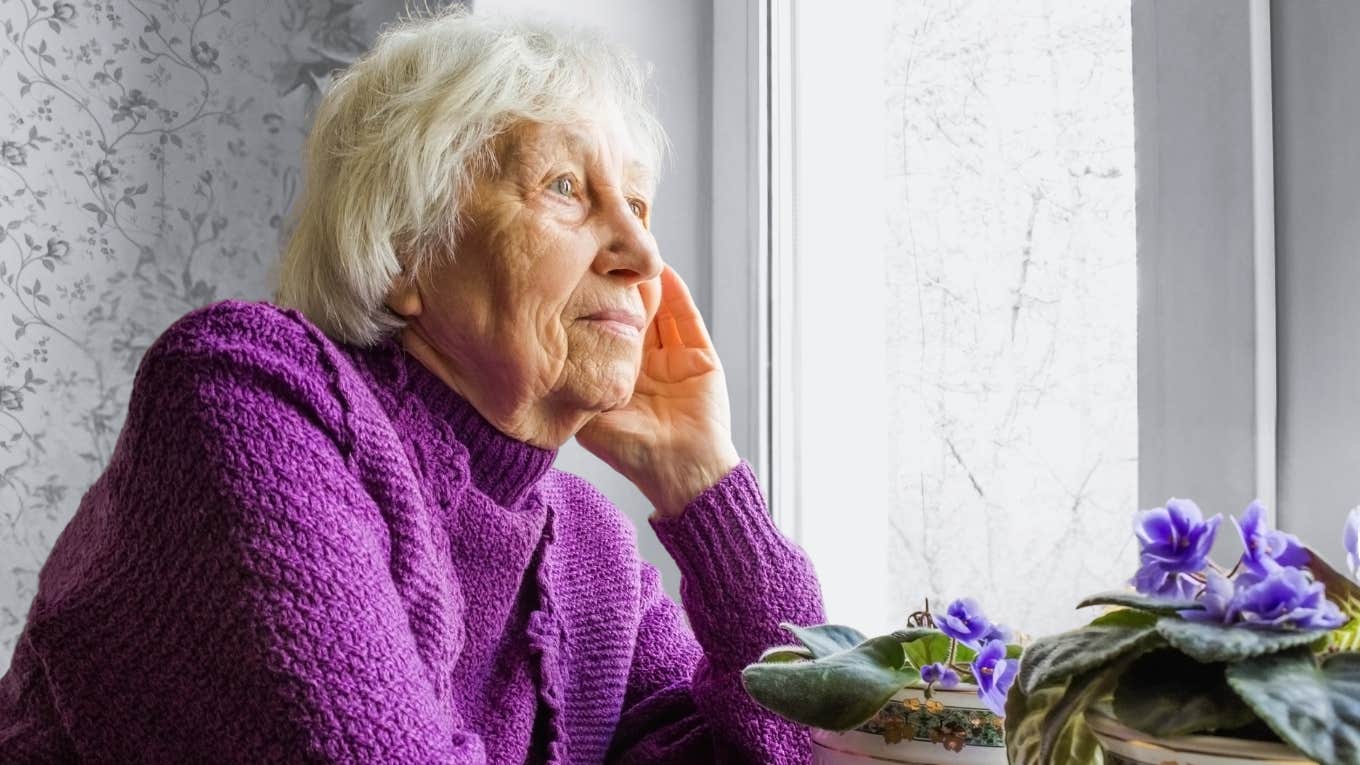Mom With Two ‘No Contact’ Adult Sons Explains Why They Both Refuse To Speak To Her
It's an impossibly complicated story, interwoven with perspectives on love, hurt, trauma, and healing.
 Solarisys / CanvaPro
Solarisys / CanvaPro Family dynamics can be complicated. Parents have a heavy burden to carry: the responsibility of caring for and loving their children.
It seems simple, but if you have children, you know that it’s not. Especially, in today’s world where therapy, trauma, communication, healthy relationships, and self-help are at the center of every conversation. While it can often be a great thing, older generations tend to struggle with accepting and healing from past mistakes, and that can create generations of younger adults holding resentment against their parents.
TikTok content creator, Dawn, uses her platform to share her own experience with parental estrangement and her two adult sons who have chosen to go “no contact” with her.
Dawn reflected on the past 2 decades to help explain why her adult sons have gone ‘no contact.’
“My life was one filled with trauma that was not addressed with therapy,” Dawn honestly admitted. As she shared, in multiple videos on her page, her story is a complicated one — where the lines of trauma, communication, and healing overlap to form a greater picture.
After losing her “high school sweetheart” to a car accident in college, Dawn met her now ex-husband, a “narcissist” whom she tried to leave multiple times.
However, when she got pregnant with her first child, she felt she “had to try” and make it work with him. So, they started their life together. After a couple more sons and years of relationship trauma, she said he “did everything in his power to alienate” her from her sons.
As they grew up, Dawn said she “tried her best” to be the best parent she could, but when she split from her husband, they chose to physically separate from her. She was forced to confront how her unhealthy marriage, her childhood trauma, and the impact of her physical health contributed to the estrangement.
Dawn said her childhood trauma and a toxic marriage greatly affected her as a mom and resulted in a home environment that was ‘less than ideal’ for her children.
“The teen years became very difficult,” she admitted. As her sons grew up, she tried to help them adopt therapy — something that was becoming more popular and welcomed in society. However, she said they weren’t open to it, so, she instead adopted a “tough love” approach.
She explained that “tough love” was the parenting fad of the time — something she genuinely thought would help her sons grow into better people and adults. As time went on, there was an emotional distance that formed between them, however.
“It was very difficult for the kids,” she said, “because when I wasn’t working, I was sleeping. A lot of things came down on their shoulders… their teen years were probably not fun and filled with worry.”

When the time came for her sons to leave the house — with her first leaving “very very early” — Dawn said, “It was such a difficult time.” She, "made a lot of mistakes.” She tried her best but worried about their preparation for adulthood.
Like many parents, she thought that “modeling good behavior” for her kids meant not drinking, not smoking, not doing drugs, but quickly realized that wasn’t enough to prepare them for life. Being a parent is about so much more than providing the bare necessities and steering children away from bad decisions. It’s deeply rooted in cultivating safe spaces, open communication, and unconditional love.
When her children left and started their own families, she quickly realized she’d been intentionally isolated from their lives and looked to online resources for an explanation.
Ultimately, her children moved on and started their own families. Dawn recalled the moment she met her oldest son’s girlfriend, who thanked her for “molding her son” into a great person. “I should’ve stopped her,” and said right then that “I wasn’t a good mother.” She wishes now that she would’ve used that opportunity as a chance to apologize — to mend things — but she didn’t.
Over time, she started hearing from her sons less, with her oldest almost completely cutting off contact with her for several months.
They wanted to completely cut off contact with their mom who had been at the root of their emotional pain and trauma as children.
Although she had trauma that influenced her behavior, it was easier for her children to grasp onto each other and rely on the bonds they'd formed as siblings to navigate adulthood.
Telling her story and utilizing therapy helped Dawn realize the impact that her unhealed trauma had on her children.
From foster care as a child to brain injuries as an adult, Dawn suffered several tragedies throughout her life. All of which influenced her presence and actions as a mother.
“Therapy was not offered to me to deal with my trauma,” she explained. “I now know the background of what was not healed in me before having children." When she offered therapy to her children, seeing their struggles as kids, it never prompted her to look inward. Only now has she started to realize she was the one who needed it.
It’s taken the isolation from her family to realize how her past influenced her actions as a mother.
'All I ever wanted to be in life was a mom. And now I have no children right now — none.'
Despite all the interwoven pieces and an entire narrative of this family being left out, Dawn deserves grace.
We’re all experiencing and navigating life at the same time, dealing with our trauma in the present moment. Her platform is an avenue for her to express her shame, her guilt, her resentment, and her healing journey — and it's also helping others going through the same struggle.
Let this be a sign: If you feel even a small ounce of resentment towards a parent, use therapy as a tool to navigate it. Not only will it present the opportunity to reconnect and rebuild your relationship with them (if that's appropriate), but it can also help you to build, understand, and cultivate a healthy relationship with yourself.
Zayda Slabbekoorn is a news and entertainment writer at YourTango focusing on pop culture and human interest stories.

